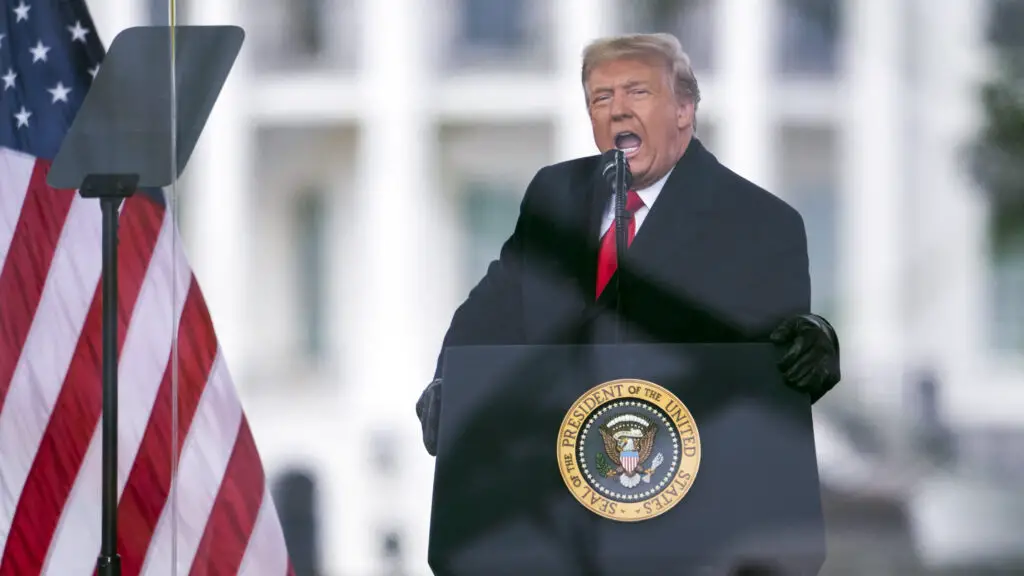
The political chessboard is always in flux, with each move by key players setting the stage for the next. One such strategic maneuver, which has captured the attention of political analysts and the public alike, is former President Donald Trump’s decision to abstain from the upcoming Republican primary debates. With a commanding lead in recent opinion polls, Trump’s strategy appears to be rooted in his current popularity, but what does this mean for the broader GOP landscape and the 2024 presidential race?
A CBS poll, released shortly before Trump’s announcement, provides a snapshot of the former president’s standing among Republican voters. An impressive 62% of respondents voiced their support for Trump, a figure that significantly outpaces other potential Republican candidates. Florida Governor Ron DeSantis, often touted as a strong contender and a future face of the GOP, garnered the support of just 16% of respondents. Such a disparity in numbers offers a glimpse into the rationale behind Trump’s decision. With such a robust lead, the need to participate in debates and defend his position might seem redundant to Trump.
However, the decision to skip the debates goes beyond just numbers. Debates are a time-honored tradition in American politics, offering candidates a platform to articulate their vision, challenge their opponents, and engage directly with the electorate. By choosing not to participate, Trump is signaling a departure from this tradition, potentially ushering in a new era of political campaigning. This move can be interpreted in various ways: a show of confidence, a tactical decision to avoid potential pitfalls, or even a statement about the current state of political discourse.
With Trump off the debate stage, the dynamics of the upcoming event in Milwaukee are set to change dramatically. Candidates who might have previously prepared to challenge Trump will now need to recalibrate their strategies. The focus will likely shift to other prominent figures, like DeSantis, who will now have an opportunity, and the challenge, of occupying center stage.
For the GOP, Trump’s decision presents both opportunities and challenges. On one hand, it offers the party a chance to showcase a diverse range of voices and visions, potentially attracting different segments of the Republican base. On the other hand, Trump’s absence might lead to a more fragmented debate, with no clear frontrunner to rally behind. This scenario could lead to deeper introspection within the GOP about its future direction, core values, and strategy for the 2024 elections.
In conclusion, Trump’s decision to abstain from the debates, while influenced by his strong poll numbers, has broader implications for the GOP and the 2024 presidential race. The Milwaukee debate, now missing its most dominant figure, is poised to be a pivotal event in the lead-up to the elections. As the GOP grapples with its identity and future direction, Trump’s shadow, even in his absence, will undoubtedly play a significant role in shaping the narrative.
Source Trending politics

